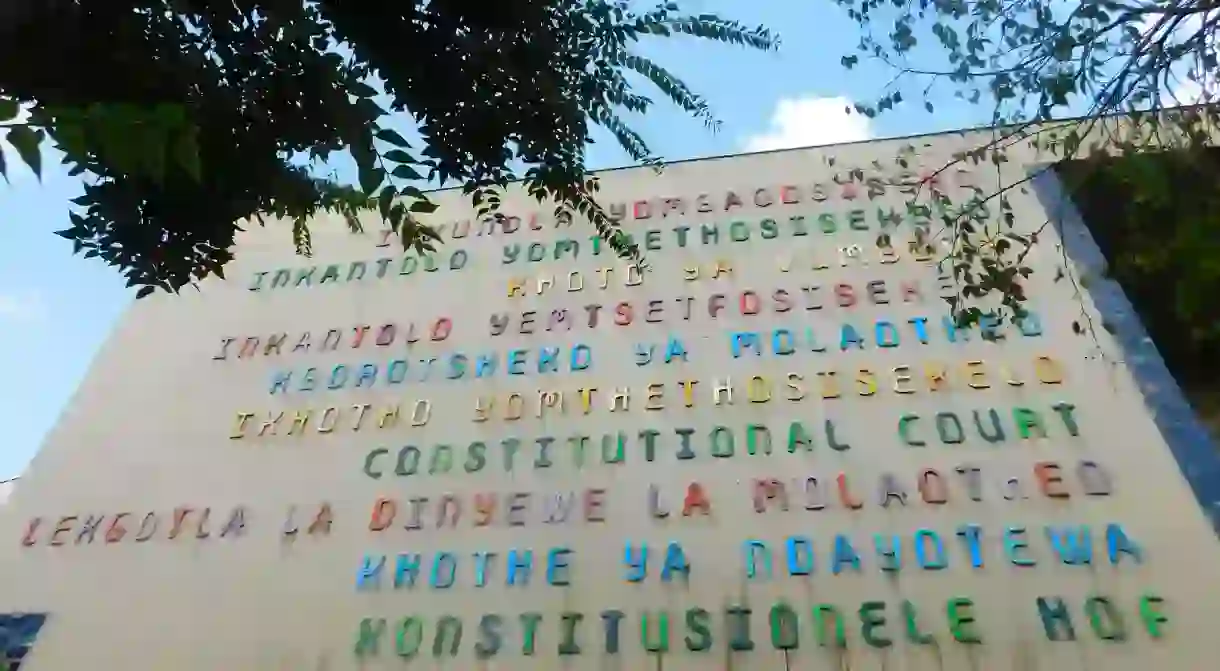Why Some Places In This Country Go By Multiple Names

In South Africa, it’s not uncommon to find places with multiple names or undergoing controversial name changes. Eleven official languages, an apparent love of slang and colloquialisms, a complex political history, and an inclusive constitution all play their part in this phenomenon that has left many confused and wondering why some places go by more than one name.
Any change of government is a complex process and as recent political events have shown, even peaceful transitions between opposing political parties in established democracies reveal conflicts, clashes, and requires extensive compromise. So just imagine the complexities when a country goes from colonised rule to tyrannical and divisive regime, and then into a new democracy—one that prides itself on its all-inclusive policies; this is precisely what happened in South Africa and though the process has had many complexities, one aspect, in particular, has been particularly controversial—that of place names referencing bygone eras.
Removing Offensive References
When South Africa finally achieved democracy in 1994, many institutions and government buildings, most streets, towns, cities, and even province names referenced early colonisers and apartheid-era politicians.
Most of these names were outright offensive—such as those of the architects of apartheid or early colonisers. Others were simply inaccurate or were assigned by colonisers or the apartheid government in spite of what the original residents felt.
As such, the ruling African National Congress set about trying to amend this in line with the country’s widely-lauded constitution. This proved a complex and controversial task that still sparks widespread debate in the country 23 years into the process.
The responsibility of the change fell under the South African Geographical Names Council, and between 1996 and 2010 alone, they had approved some 850 changes to suburbs, residential areas, and geographic places.

11 Official Languages Reveals Complexities
One of the contributing complexities to South Africa’s name changes is the country’s decision to officially recognise 11 languages. Under apartheid rule, most names in the country failed to recognise the various languages and cultural groups and instead focused primarily on English and Afrikaans.
Though English may be the official language of business in the country, only about eight percent of the population use it as their mother tongue according to a 2011 census. Languages in South Africa are also fairly regional; as such, it became important to rename places in a way that resonated with the people who live there. For example, in KwaZulu-Natal, isiZulu is the most widely spoken language; whereas in the Eastern Cape, more than 80 percent of the population speaks isiXhosa.
As a result of the 11 officially-recognised languages and the shared history of many places in the country, a large number now have official and colloquial names in more than one language.

Influence of Slang and Colloquialisms
The 11 languages have combined the country’s love for colloquialisms and slang and have made for some interesting new names—both official and unofficial.
Johannesburg has several monikers including Jo’burg, Jozi, eGoli (an isiZulu name for city of gold), and Joeys. Cape Town also goes by iKapa and Kaapstad (which are isiXhosa and Afrikaans—two prominent languages in the Cape), as well as the Mother City. Pretoria is straddling a name change to Tshwane, and many residents use the names interchangeably along with the affectionate term of Jacaranda City referencing the trees that line the stately streets.
Other cities and provinces around the country have affectionate shortenings such as KZN (KwaZulu- Natal), Durbs (Durban), PE (Port Elizabeth), Stellies (Stellenbosch), Bloem (Bloemfontein), and the Berg (Drakensberg Mountains).
Unsurprisingly, the name South Africa is not without its controversies and nicknames. Though some politicians have discussed the possibility of changing the country’s name, this appears unlikely at this time. Still, many refer to the country as Mzansi, (derived from isiXhosa words ‘Mzantsi Africa’, or South Africa), SA (the abbreviation for South Africa), and RSA (for Republic of South Africa).

Controversies
A large number of post-1994 name changes are either compromises or combinations of pre-existing names or new names. KwaZulu-Natal, for example, used a mixture of previous and present names.
Others like Pretoria still straddle a difficult balance between old and new. This city-name change has been at the centre of the country’s name-change controversies. Though a change from Pretoria to Tshwane has been in the cards since 2005, it has received vociferous objections from certain lobby groups looking to retain the city’s Afrikaans identity.
These lobby groups, such as Pro-Afrikaans Action Group, claim that the decision to change the name of Pretoria is divisive. Others have also argued that it a form of reverse discrimination and erasing important heritage from the country’s history.
In the interim, the state has renamed the municipal region as a compromise. And a recent speech by mayor Kgosientso Ramokgopa indicated that the name change process would be finalised soon. The official viewpoint, however, is that name changes are necessary to create social cohesion.
What this all means is that even more than two decades into a democracy, some roads, towns, and cities are still changing their names or go by more than one name—a constant reminder of just how complex it can be to erase problematic elements of a country’s history.














